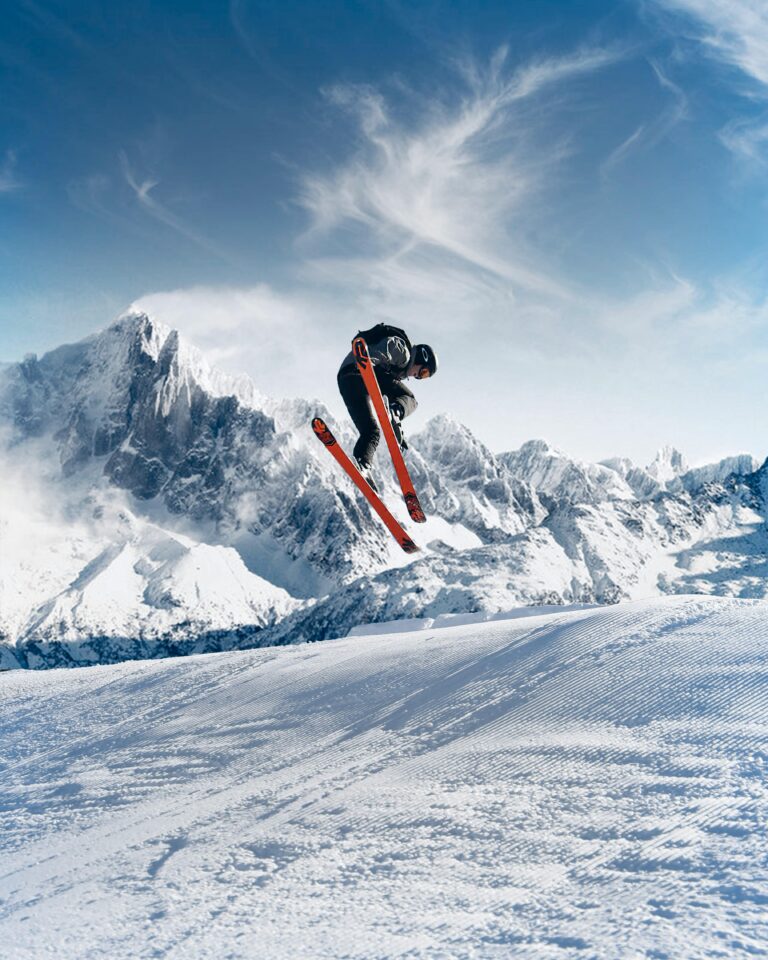Skateboarding can be tough for beginners mainly because it requires balance, physical coordination, and the courage to deal with falls. However, with practice and the right mindset, anyone can learn to skate and enjoy the ride.
What Makes Skateboarding Challenging for Beginners?
Skateboarding presents several challenges for beginners, primarily due to the required physical coordination, balance, and the psychological fear of falling. These factors create a steep learning curve as they adapt to using the board and develop muscle memory.
Stepping onto a skateboard for the first time is like embarking on a new adventure—exciting yet daunting! You might think you have balance, but that doesn’t always translate to a moving board. The coordination needed to push off, steer, and maintain your balance can feel overwhelming.
Let’s be honest: fear is a common foe. Many newcomers hesitate to dive in, worried about the possibility of crashes and injuries. “I was terrified of falling,” shared one user on Reddit, capturing that universal feeling. But here’s the truth: everyone falls! Each tumble is just another chance to learn and get better.
How Does Age Affect Learning to Skateboard?
Age influences learning to skateboarding; younger skaters often benefit from better coordination, flexibility, and resilience. Older beginners may face more physical challenges but can leverage life experience to approach learning from a strategic perspective.
Younger kids often zip through learning to skate. Their brains are still firing up those connections that help with balance and coordination—it’s like having built-in cheat codes! They also tend to bounce back from failures faster, making the whole process less stressful.
On the flip side, older beginners might find stiffer muscles getting in the way, and the fear of injury might feel a bit more real. But hey, age brings wisdom! Older skaters can stay calm and focused, using their experiences to tackle those challenges. Remember, as one skater wisely pointed out: “Start slow, and don’t hesitate to ask younger skaters for tips!”
What Are the Key Skills to Develop for Beginner Skateboarders?

Essential skills for beginner skateboarders include foot positioning, balancing techniques, and learning to push off and ride smoothly. Mastering these fundamentals is crucial for building a solid skating foundation.
- Foot Positioning and Stance:
- Place your dominant foot on the tail for pushing.
- Keep your back foot centered over the tail and your front foot across the board.
- Balancing Techniques:
- Practice standing still on the board on a flat surface.
- Try bending your knees slightly to lower your center of gravity for improved stability.
- Pushing Off and Riding Smoothly:
- Start by gently pushing off with your back foot while your front foot stays steady.
- Gradually increase your speed as you gain confidence.
Getting the hang of these skills won’t happen overnight. Regular practice in a calm space can make all the difference. Keep a record of your progress; it’ll help motivate you to keep pushing forward!
What Common Mistakes Should Beginners Avoid?
Common mistakes beginner skateboarders should avoid include overconfidence and rushing the learning process, neglecting safety gear, and focusing exclusively on tricks instead of foundational skills.
Entering the skating world with the right mindset is crucial—patience is key! Here are some traps to avoid:
- Overconfidence and Rushing: Jumping ahead without mastering fundamentals can lead to injuries. Take your time.
- Neglecting Safety Gear: Skipping helmets and pads can lead to unnecessary injuries. Safety gear can actually boost your confidence, allowing you to skate with less worry.
- Focusing Too Much on Tricks: While it’s tempting to dream about big tricks, solid grounding in foundational skills is critical for future progress.
How Do Mental Barriers Impact Learning to Skateboard?
Mental barriers such as the fear of falling and performance anxiety can significantly impede a beginner’s ability to progress in skateboarding. Shifting the mindset from perfectionism to simply enjoying the ride is crucial.
The psychological journey of learning to skate is profound. Fear of falling can freeze even the most eager newbies. Always remember; every skater falls—it’s a totally normal part of the learning curve! Experienced skaters often advise seeing falls as stepping stones instead of failures. One comment stood out among the rest: “Each fall is an invitation to learn something new.”
Performance anxiety can also sneak in, especially in crowded skate parks. Focus on your progress and aim to improve rather than compare yourself to others. Embracing a growth mindset can turn this journey into a rewarding adventure!
What Safety Precautions Should Beginners Take?
Safety measures for new skateboarders include the consistent use of protective gear, awareness of common injuries, and accessibility to safety guidelines that can enhance overall skateboarding security.
- Wear Protective Gear: Helmets, knee pads, elbow pads, and wrist guards are your best buds against serious injuries. Invest in quality, well-fitting gear!
Common Injuries and Prevention:
- Cuts and bruises from falls—most of these can be avoided with the right gear.
- Sprains or fractures from awkward falls can be minimized by learning to fall the right way.
For solid safety guidelines, check out resources like the National Institute for Health and Care Excellence (NICE).
How Long Does It Typically Take to Learn Skateboarding?
The learning timeframe for skateboarding varies significantly depending on prior athletic experience and the individual’s commitment to practice. Discussions in community forums often suggest that consistent practice can yield noticeable progress within weeks.
Some skaters find their footing within a matter of days, while others might take a few weeks or even months before they feel comfortable on the board. Here’s a rough estimate:
| Skill | Estimated Timeframe |
|---|---|
| Balancing | 1-2 weeks |
| Pushing off | 2-3 weeks |
| Riding smoothly | 1 month |
| Basic tricks | 2-3 months or more |
Experienced skaters echo a similar sentiment: consistent practice is your best tool. “I couldn’t do much for months, then one practice session clicked, and I was cruising,” one skater recalls.
What Are the Best Strategies for Learning?
Effective strategies for beginners include maintaining consistent practice, choosing the right learning environments, and setting realistic and achievable goals throughout the learning journey.
Finding a solid routine can bolster your progress and keep the learning process enjoyable. Here are a few strategies:
- Consistent Practice: Aim for daily practice, even if it’s only for 20-30 minutes. Regular movement locks in your skills.
- Finding the Right Environment:
- Skate parks can offer varied terrain and a supportive community of fellow learners.
- Streets can be more calming for practice without the pressure of expert skaters nearby.
- Setting Achievable Goals: Rather than rushing to master a tricky move, break things down into smaller milestones—like balancing a little longer or mastering a basic push-off.
Veteran skaters often stress the importance of pursuing what you’re truly interested in rather than feeling urgency to catch up with trends. Remember, “It’s your journey—enjoy every step of it!”
How Can Beginners Overcome the Fear of Falling?
To overcome the fear of falling, beginners should learn techniques for safe falling, build their confidence through practice, and gradually expose themselves to more challenging environments.
It can be a little scary to think about falling, but there are ways to tackle that fear head-on:
- Techniques to Fall Safely:
- Aim to roll when you fall.
- Keep your arms close to your body to avoid wrist injuries.
- Building Confidence Gradually: Start in a familiar space with supportive friends. Practicing on softer surfaces like grass can ease your anxiety before hitting the pavement.
- Encouragement Through Anecdotes: Every skater has awkward fall stories! You’ll find reminders that it’s perfectly fine to be imperfect. “When I first tried to drop in, I fell. It was terrifying! Now, it’s my absolute favorite part,” one skater shared, showing how overcoming fears can lead to amazing experiences!
Are Skate Parks Safe for Beginners?
Skate parks can be safe for beginners when appropriate precautions are taken, and they often provide unique benefits and opportunities for learning and community building.
Beginner-friendly skate parks typically have smoother surfaces and gentle slopes, making them easy to navigate. However, the busy environment can feel intimidating to newcomers.
- Features of Beginner-Friendly Parks:
- Designated areas for beginners with low ramps and smooth transitions.
- Ample space to practice without feeling pressured by more advanced skaters.
- Addressing Common Fears: Familiarizing yourself with the layout of the park can help alleviate those nerves. Observing other skaters will also offer helpful tips and techniques.
Many community experiences reveal that new skaters usually find support from more experienced ones. “Whenever I felt unsure, someone always stepped in to help. It was heartwarming!” shared one beginner.
FAQ
Is skateboarding hard for beginners?
Skateboarding can be challenging for beginners due to the need for balance, coordination, and confidence. However, with practice and the right mindset, anyone can learn to skate.
What is the hardest part of learning to skateboard?
The hardest part is often mastering balance and overcoming the fear of falling. Building muscle memory takes time and perseverance.
How can I practice skateboarding safely?
Practice in a controlled environment, wear protective gear, and start with basic skills before progressing to tricks. Learning about how to fall safely can also help reduce injuries.
Can anyone learn to skateboard at any age?
Yes, people of all ages can learn to skateboard. However, younger individuals may adapt more quickly due to better balance and flexibility.
Embedded Video
Recommended Reads:
If you’re keen on other sports with a steep learning curve, take a peek at our articles on skiing dangers and snowmobiling for riders of all sizes. Every sport brings challenges, but with solid preparation and knowledge, you can enhance your experience!




